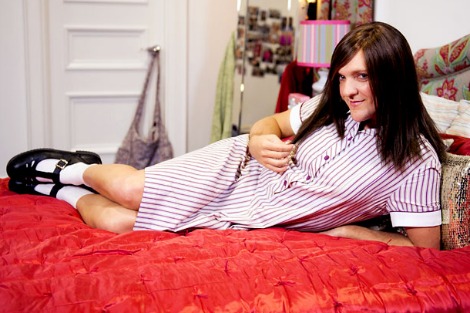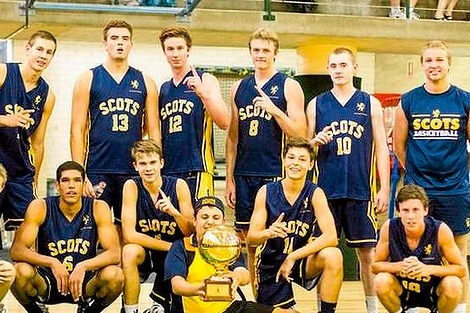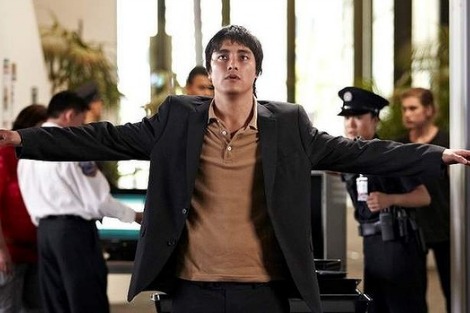Keywords: Eureka Street Tv
-

MEDIA
- Michael Mullins
- 02 February 2014
18 Comments
Tony Abbott's suggestion that the ABC should be patriotic in its news reporting is not compatible with its Charter obligation to truth and impartiality. But it is a reminder that the ABC has muddied its own waters by taking on the running of the Government's Australia Network international television service, which gives patriotism priority over truth.
READ MORE 
-

AUSTRALIA
- Michael Mullins
- 09 January 2014
TV viewers are alarmed that they can so easily identify with Ja'mie King, Chris Lilley's studiously unlikeable comic creation in ABC1's Ja'mie: Private School Girl. In a previous incarnation, Ja'mie was sponsoring underprivileged Third World children about whom she knew little and cared less. People like Ja'mie have a pathological disability to feel the needs of others.
READ MORE 
-

RELIGION
- Peter Kirkwood
- 04 December 2013
12 Comments
READ MORE
-

AUSTRALIA
- Michael Mullins
- 28 October 2013
18 Comments
TV viewers are alarmed that they can so easily identify with Ja'mie King, Chris Lilley's studiously unlikeable comic creation in ABC1's Ja'mie: Private School Girl. In a previous incarnation, Ja'mie was sponsoring underprivileged Third World children about whom she knew little and cared less. People like Ja'mie have a pathological disability to feel the needs of others.
READ MORE 
-

AUSTRALIA
- Michael Mullins
- 30 September 2013
14 Comments
Five of Sydney's prestigious GPS schools have boycotted competition with another member of their association, The Scots College, because it is accused of undermining the spirit of competition in school sport by offering inducements to lure students with sports star potential. This undermines what the GPS code of ethics calls 'the spirit of the amateur' that promotes character, resilience and teamwork ahead of winning.
READ MORE 
-

AUSTRALIA
- Frank Brennan
- 07 September 2013
12 Comments
How clever of you to choose the day of the federal election for me to offer these reflections. I come amongst you, not as a publisher or journalist but as an advocate in the public square animated by my own religious tradition as a Jesuit and Catholic priest engaged on human rights issues in a robustly pluralistic democratic society.
READ MORE
-

AUSTRALIA
- Andrew Hamilton
- 22 August 2013
16 Comments
Reflecting on his participation in an SBS TV marriage equality discussion, Ben felt judged and humiliated by many who responded to him. Must determining what is right and wrong for a society be bound up with judging people? Or can we listen to our conversation partners, reach for a language that is shared and leave room for our opinions to be changed? Pope Francis showed the way when he said: ‘If a person is gay and seeks the Lord and has good will, well who am I to judge them?’
READ MORE 
-

ARTS AND CULTURE
- Tim Kroenert
- 08 August 2013
1 Comment
'God didn't give me these talents and looks to just sit around being a model or being famous. I want to lead a huge charity organisation. I want to lead a country, for all I know.' In 2008–2009 a group of teenagers stole $3 million of jewellery and clothes from the homes of Paris Hilton, Lindsay Lohan and other Hollywood stars. Coppola portrays this as an outcome of materialism centred on celebrity worship.
READ MORE 
-

ARTS AND CULTURE
- Tim Kroenert
- 01 August 2013
3 Comments
On 1 January 2009, police in Oakland, California shot dead an unarmed African-American man, 22-year-old Oscar Grant. The event sparked riots, and renewed tensions around race and debates about police procedure. Underlying this politicised context is the story of a young father and former drug dealer who was trying, with mixed success, to turn his life around.
READ MORE 
-

ARTS AND CULTURE
- Tim Kroenert
- 25 July 2013
7 Comments
Many Australians feel ownership of Nguyen's story, who was executed for drug trafficking in Singapore in 2005. Khoa Do more than most Australian filmmakers has the moral authority to tell that story without being accused of exploitation. Yet it is hard not to sympathise with the objections of Nguyen's family to Do's SBS new miniseries. Which mother would want public property made of her private grief?
READ MORE 
-

ARTS AND CULTURE
- Tim Kroenert
- 27 June 2013
Luciano pleads with two startled widows at a funeral, who reassure him that he is on the right path to getting into 'the house'. While they think they've offered comfort to a troubled seeker, he thinks he's received an inside tip from Big Brother's spies. The dissonance between his pursuit of fame, and the comfort found by others in religious faith, is profound.
READ MORE 
-

AUSTRALIA
- Michael Mullins
- 24 June 2013
21 Comments
Rudd's rise from backbencher to Labor leader in the five years to 2006 was facilitated by his weekly presence on Channel 7's Sunrise. Here he created a persona seen as ordinary, trustworthy and familiar to the point of intimacy. Things went wrong when he was unable to work with colleagues to get things done for Australians who saw him as their mate.
READ MORE 